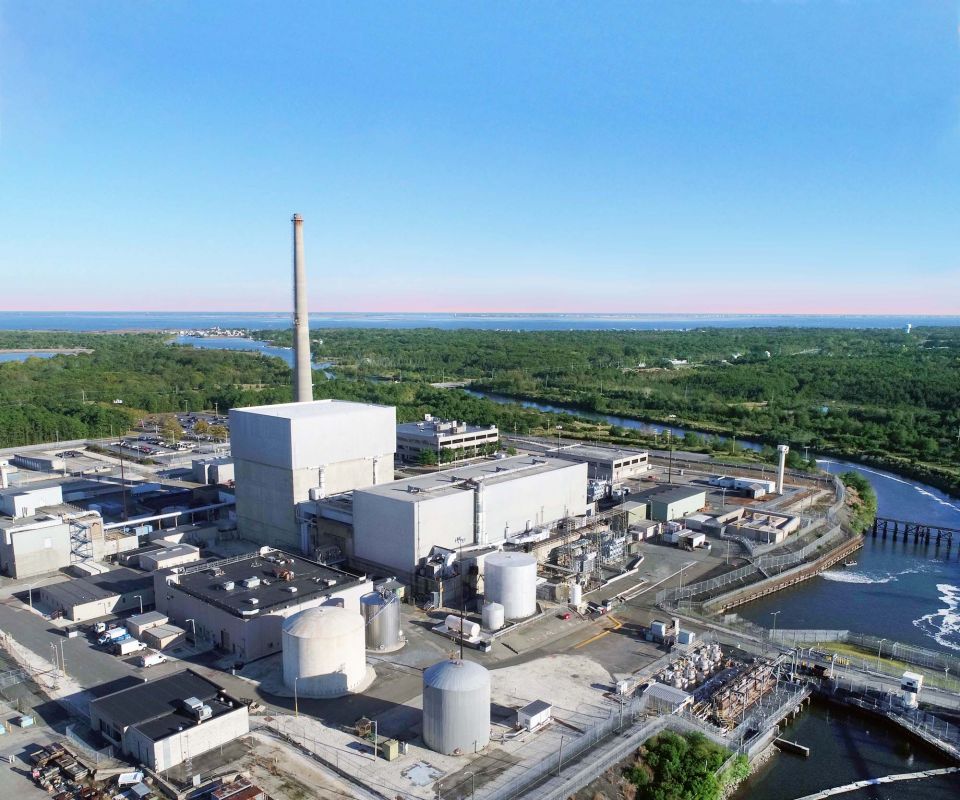NRC approves simplified mandatory hearings
The Nuclear Regulatory Commission is simplifying procedures for mandatory hearings on licensing commercial nuclear power plants and uranium enrichment facilities.

A message from Schulz Electric
Schulz Electric™ Refurbishes Critical Circulating Water Pump Motor in Only Four Days
The Nuclear Regulatory Commission is simplifying procedures for mandatory hearings on licensing commercial nuclear power plants and uranium enrichment facilities.
NRC to hold workshop on improving realism in probabilistic risk assessment
The Nuclear Regulatory Commission will hold a two-day public workshop September 30–October 1 to discuss efforts to improve realism in probabilistic risk assessment. The hybrid workshop,...
David Wright officially sworn in for third term at the NRC
The Nuclear Regulatory Commission recently announced that David Wright, after being nominated by President Trump and confirmed by the Senate, was ceremonially sworn in as NRC chair on...
Fermi America looks to go public as NRC accepts COLA for AP1000s
Texas Tech University and Fermi America are now one step closer to realizing their massive vision for the Advanced Energy and Intelligence Campus in Amarillo, Texas, as the Nuclear Regulatory...

NRC to conduct environmental review of GLE’s enrichment facility
As part of its environmental review of Global Laser Enrichment’s planned Paducah Laser Enrichment Facility (PLEF) in Kentucky, the Nuclear Regulatory Commission announced it will conduct a...

New consortium to address industry need for nuclear heat and power
Hoping to tackle a growing global demand for energy, The Open Group, a vendor-neutral technology and standards membership organization, has announced the formation of the Industrial Advanced...

ANS’s webinar on RIPB design in the NuScale US460
The American Nuclear Society’s Risk-informed, Performance-based Principles and Policy Committee (RP3C) has held another presentation in its monthly Community of Practice (CoP) series. Former...
NRC, DOE to hold webinar on HALEU fuel cycle
The Nuclear Regulatory Commission and the Department of Energy will hold a webinar on August 27 from 1:00 p.m. to 4:00 p.m. (EDT) to discuss commercial-scale facility and transportation...
A new collaboration among Kairos, TVA, and Google
In a flurry of press releases, blog articles, and LinkedIn posts all released August 18, Kairos Power, Google, and the Tennessee Valley Authority announced a new power purchase agreement (PPA)...
Oyster Creek submits plan to terminate its NRC license
Holtec International has submitted a license termination plan (LTP) for Oyster Creek nuclear power plant to the Nuclear Regulatory Commission, a milestone in the decommissioning of the boiling...

House E&C Democratic members question the DOE
As work progresses on the Department of Energy’s Nuclear Reactor Pilot Program, which will progress through DOE authorization rather than Nuclear Regulatory Commission licensing, three...